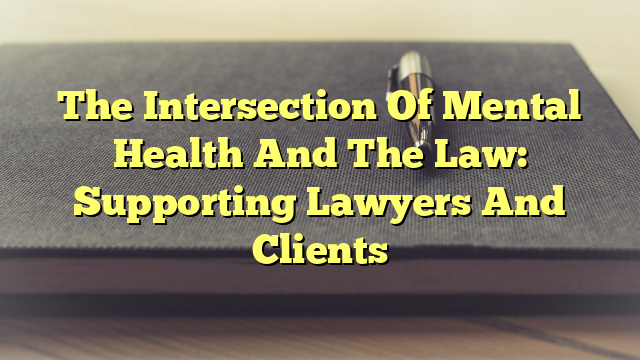Table of Contents
- Is there tension between mental health confidentiality and the legal system?
- How do crime and mental illness intersect?
- What is the legal responsibility of the mentally ill person?
- What are the mental demands of a lawyer?
Is there tension between mental health confidentiality and the legal system?
The intersection of mental health and the law presents complex ethical and legal challenges. Mental health confidentiality is at the core of any strong doctor-patient relationship, and it is essential for patients to feel comfortable speaking about personal topics of a sensitive nature. At the same time, the legal system must protect the safety of the public and ensure that justice is served. This can create tension between mental health confidentiality and the law, as these two obligations can sometimes be in conflict with each other.
In some cases, the legal system may require that information from a mental health professional is disclosed to the court. This can put the mental health professional in a difficult position as they must balance their duty of care to the patient with their duty to the court. In such cases, mental health professionals often seek to minimize the disclosure of sensitive information and ensure that only the relevant information is disclosed. This is often done by seeking the consent of the patient, informing the patient of their rights, and obtaining advice from other professionals.
Mental health professionals must also be aware of the laws regarding the disclosure of confidential information. In the United States, the Health Insurance Portability and Accountability Act (HIPAA) sets out the standards for the disclosure of confidential information. Similarly, in the United Kingdom, the Data Protection Act (2018) sets out the rules for disclosing confidential information.
How do crime and mental illness intersect?
The intersection of crime and mental illness is a complex issue. It is estimated that around 15-20% of people in the criminal justice system have some form of mental illness, with a higher proportion of those convicted of violent crimes showing signs of mental illness. This means that mental health issues can be a factor in criminal behaviour, and it is important to be aware of this when considering the criminal justice system.
Mental health professionals must be mindful of the laws and regulations governing the treatment of mentally ill people who have committed a crime. In the United States, the Americans with Disabilities Act (ADA) and the Mental Health Parity and Addiction Equity Act (MHPAEA) both set out the rights of those with mental illness who have been convicted of a crime. Similarly, in the United Kingdom, the Mental Health Act (1983) sets out the rights of those with mental illness who have been accused or convicted of a crime.
When considering the intersection of crime and mental illness, it is also important to consider the rights of victims. Victims of crime must be provided with the necessary support and protection to ensure that their needs are met and that they feel safe and secure. Mental health professionals must be aware of the laws and regulations governing the rights of victims, and should be prepared to provide appropriate support to victims of crime.
What is the legal responsibility of the mentally ill person?
The legal responsibility of the mentally ill person depends on the laws of the jurisdiction in which they reside. In the United States, the Americans with Disabilities Act (ADA) sets out the rights of those with mental illness, while the Mental Health Parity and Addiction Equity Act (MHPAEA) sets out the rights of those with mental illness who have been convicted of a crime. Similarly, in the United Kingdom, the Mental Health Act (1983) sets out the rights of those with mental illness who have been accused or convicted of a crime.
In general, the legal responsibility of the mentally ill person is to abide by the laws of their jurisdiction and to follow any court orders. For those with mental illness, the court may order them to receive treatment or to participate in certain activities. It is important that the mentally ill person complies with any court orders, as failure to do so may result in further legal action being taken against them.

